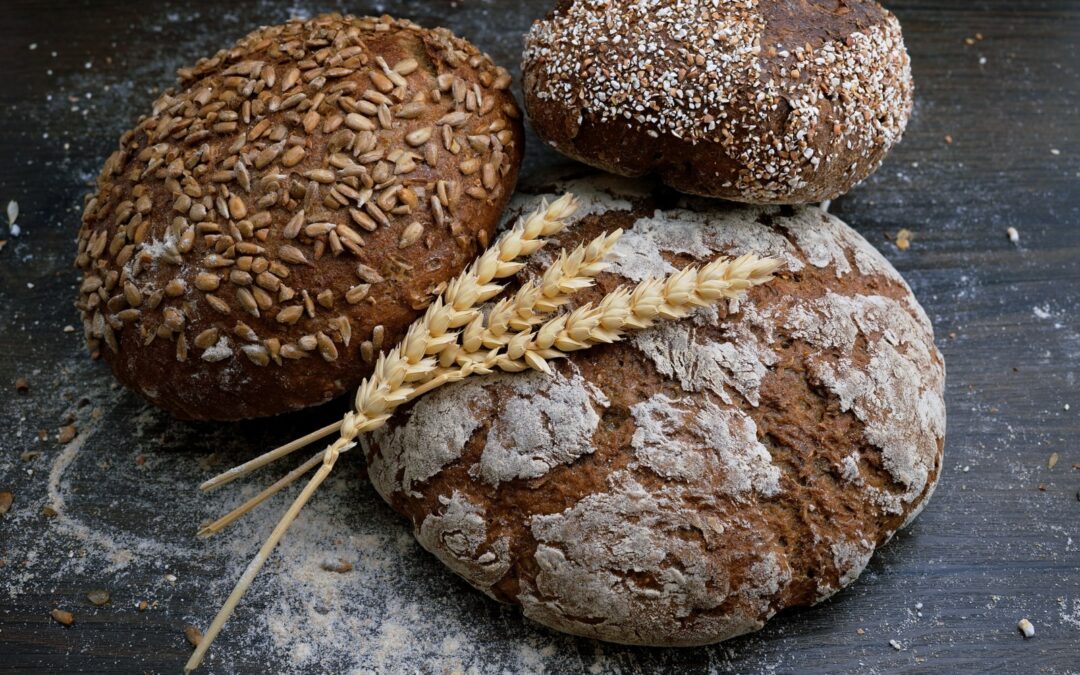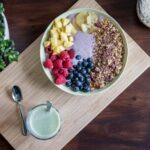Why Do We Ask You Not To Eat Gluten Even If You Don’t Have Celiac’s Disease?
The main reason is that your gut is so very important to your overall health. The lining of your gut is the largest surface that provides a barrier between the environment and your body, thus it is crucial that the gut lining can be efficient at deciding what may enter and what shall not pass!
Leaky gut refers to an alteration in what your digestive tract allows to enter your bloodstream and body, compared to what it eliminates as waste. A large number of chronic inflammatory diseases including irritable bowel syndrome, Chron’s disease, asthma, arthritis, autoimmune diseases and autistic spectrum disorders have been associated with leaky gut. Current research tells us that leaky gut increases after exposure to gluten in all individuals whether you have a predisposition to coeliac disease or not. If you have any kind of inflammation occurring in your body, removing gluten is a simple, dietary way to address one of the key underlying drivers or causes of that inflammation and work towards having the best gut health and therefore overall health outcomes.
Why Is Gluten So Rough On The Digestive System?
Gluten Triggers Inflammation
Gliadins and glutanins are two main components of the gluten protein occurring in wheat, barley, rye and oat seeds or grain. It is thought that gliadins are most implicated in the immune reaction that occurs in celiac disease, but glutanins and gliadins are so similar in structure that they are both considered to be inflammatory and can trigger an immune system reaction.
Zonulin
It sound’s like an alien planet, but it’s in your gut and opens up “doorways” in your intestinal lining to allow nutrients and other molecules to get in and out of your gut. Too much zonulin, opens these “doorways” too far, allowing toxins, large immune- reactive protein molecules, intestinal contents and bacterial waste to enter your bloodstream. This not only has the potential to trigger inflammation and an immune response but also increases the workload on the liver to filter out “garbage” for disposal. In other words, too much Zonulin equals a leaky gut.
The triggers for too much Zonulin include overgrowth of harmful bacteria or yeasts in the gut, parasitic infections and the consumption of gluten.
Regardless of whether you have the genes for celiacs or not, the gliadin in gluten has been shown to significantly increase Zonulin in the gut.
Among the several potential intestinal luminal stimuli that can stimulate zonulin release, small exposure to large amounts of bacteria (bacteria overgrowth) and gluten, the protein causing celiac disease (CD), have been identified as the two most powerful triggers 23, 24
But what about all the B vitamins and fibre in grain products?
B Vitamins are abundant in many foods, not just those containing gluten. Unprocessed gluten-free grains such as brown rice, quinoa, teff, legumes, vegetables and meats and offal are all great sources of B vitamins. Eating a variety of foods from the various food groups is the key to balanced nutrition, and is completely doable without touching gluten.
Just Because It’s Gluten Free Doesn’t Mean It’s Good For You.
The mistake many make when going gluten-free is to look for replacements in the supermarket which are labelled gluten free. The problem with this is that the usual substitutes most sought after are bread, pasta, biscuits and crackers. The market has portrayed gluten-free to be a healthier option, but in many cases, this is not true. Often, gluten-free products contain more refined grains, additives and sugars to maintain a similar appearance, taste and texture to the original product attempting to be cloned. For example, a gluten-free brownie doesn’t automatically become a healthy option and some gluten-free breads are higher in sugar, white flours and food additives than regular breads.
A gluten-free sweet still remains a treat or sometimes food. To improve your overall health, the fundamental key is to eat less processed, packaged food overall.
Which Foods Contain Gluten?
If your practitioner has asked you to avoid gluten, this means any product that is derived from :
- Wheat
- Spelt
- Kamut/Khorasan
- Barley
- Rye
- Triticale
- Khorasan
- Oats
This may include cous cous, semolina, bourghal, bulgar.
Also remember to check the labels on foods which you may not have thought contain gluten grain products such as wraps, condiments, muesli bars, ice-creams, vinegar, some supplements.
Common foods mis-interpreted as being gluten-free are: mountain bread, sauces, cous cous, bourghul or tabbouli, noodles, ice-creams, yoghurts, milk containing malt. Always check the ingredients list!
Here is handy resource to help you find ways to swap out gluten.
How Strict Do I Need To Be?
You may not have to avoid gluten 100% forever. Unless you are a celiac, you are not allergic to gluten and the occasional indiscretion may not be critical to your health. Discuss your specific needs with your practitioner to decide whether any forms of gluten can be introduced along the way or at a later date, and what to look for to avoid inflammation and optimize nutrition.
References:
Leaky Gut & Autoimmune Disease https://www.ncbi.nlm.nih.gov/pubmed/22109896
Zonulin, a regulator of epithelial and endothelial barrier functions, and its involvement in chronic inflammatory diseases. https://www.ncbi.nlm.nih.gov/pubmed/25734566



